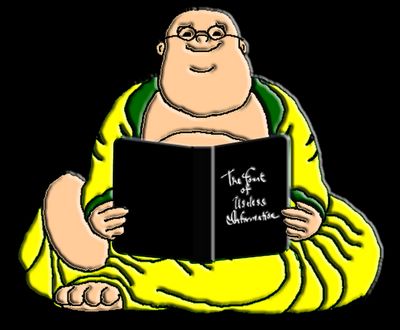We rented and watched a couple of movies recently and they really couldn't have been much more different. If anyone out there is trying to develop a personality profile based on the rental history of my account at Hollywood Video, they are destined to be thoroughly confused.
First up: Guess Who
It's really somewhat sad that this was turned into this. In the original, Tracy and Hepburn play parents dealing with their daughter bringing home her black boyfriend. In the remake, the race roles are reversed with the daughter of a black family bringing home a white boyfriend. As a concept, this works well; the problem was that we no longer examined the subject of racism. Oh sure, it was brought up but rather than bringing home a wonderful man whose only flaw is to have been born with the wrong amount of pigment, the daughter in Guess Who brings home a buffoon who happens to be white. Look at the choices: Sidney Poitier or Ashton Kutcher. Forget about race there, people. There's no contest. In addition to the issues of race, Ashton's stupidity causes him to insult others, humiliate himself and infuriate his fiance. This additional conflict distracts from almost any positive comparisons that can be drawn to Guess Who's Coming to Dinner, and turns it into an even less funny and more painful Meet The Parents.
The way the plot develops is formulaically formulaic, to the point that with every new development, the viewer feels that the characters must be complete idiots not to have figure that out by now. This isn't to say the movie isn't funny. I laughed out loud a few times, but I also cringed as many. Most of the humor in the movie comes from Bernie Mac who manages to be amusing and likeable as the overly protective father.
Second: Spring, Summer, Fall, Winter...and Spring
A Korean film from 2003, SSFW...&S (wow, it's still long even when it's abbreviated) deals with the life of a monk in a Buddhist temple floating on a lake. The film takes us through the seasons, both literal and figurative, of the monk's life. We see him as a young boy learning from the old monk about many things, most importantly about the consequences his actions have on others and himself. For summer, we join him as a teenager when a young woman is brought to the temple to recover from an illness. Discovering girls for the first time, he learns the pain caused by desire. In the fall, we see him as a young adult, his life in turmoil, and he learns that peace can be found in even the most tumultuous of times. We see him as a middle-aged adult in winter learning the final lesson of letting go. In the spring once again, he becomes the teacher and begins educating a young pupil of his own, bringing the story around to it's beginning for the end.
Told with little dialogue, Ki-Duk Kim's film uses the scenery and actions of characters to tell a story. In the end, the simplicity of that story leaves the viewer contemplating the complexities of life and the choices we make. It is not a film for everyone, but I would not hesitate to recommend it to those who are already curious.
Until later...
August 31, 2005
Bipolar Movie Rentals
Subscribe to:
Post Comments (Atom)


2 comments:
As a "lazy" movie watcher, i.e. I like to watch - not read - a movie, I have to say the I really did enjoy this film and would also recommend it. (BTW, I can read, I just can't sit still for 2 FULL hours so I usually have something else I am doing at the same time - thus missing much of a subtitled film).
We just watched Spring, Summer, Fall, Winter...and Spring this weekend and enjoyed it!
Well recommended!
Post a Comment